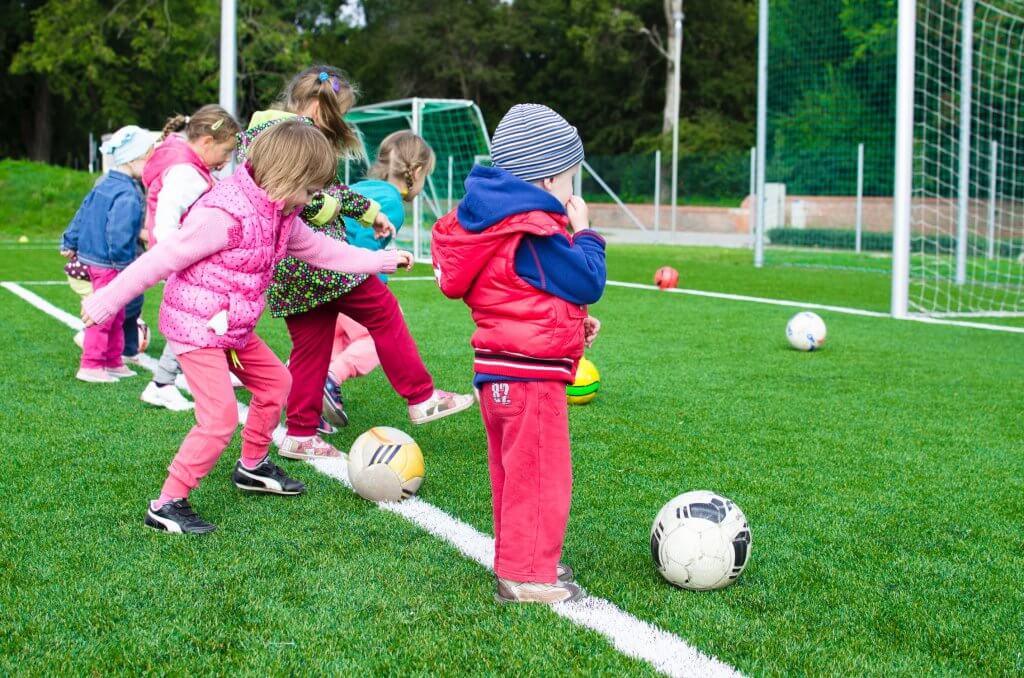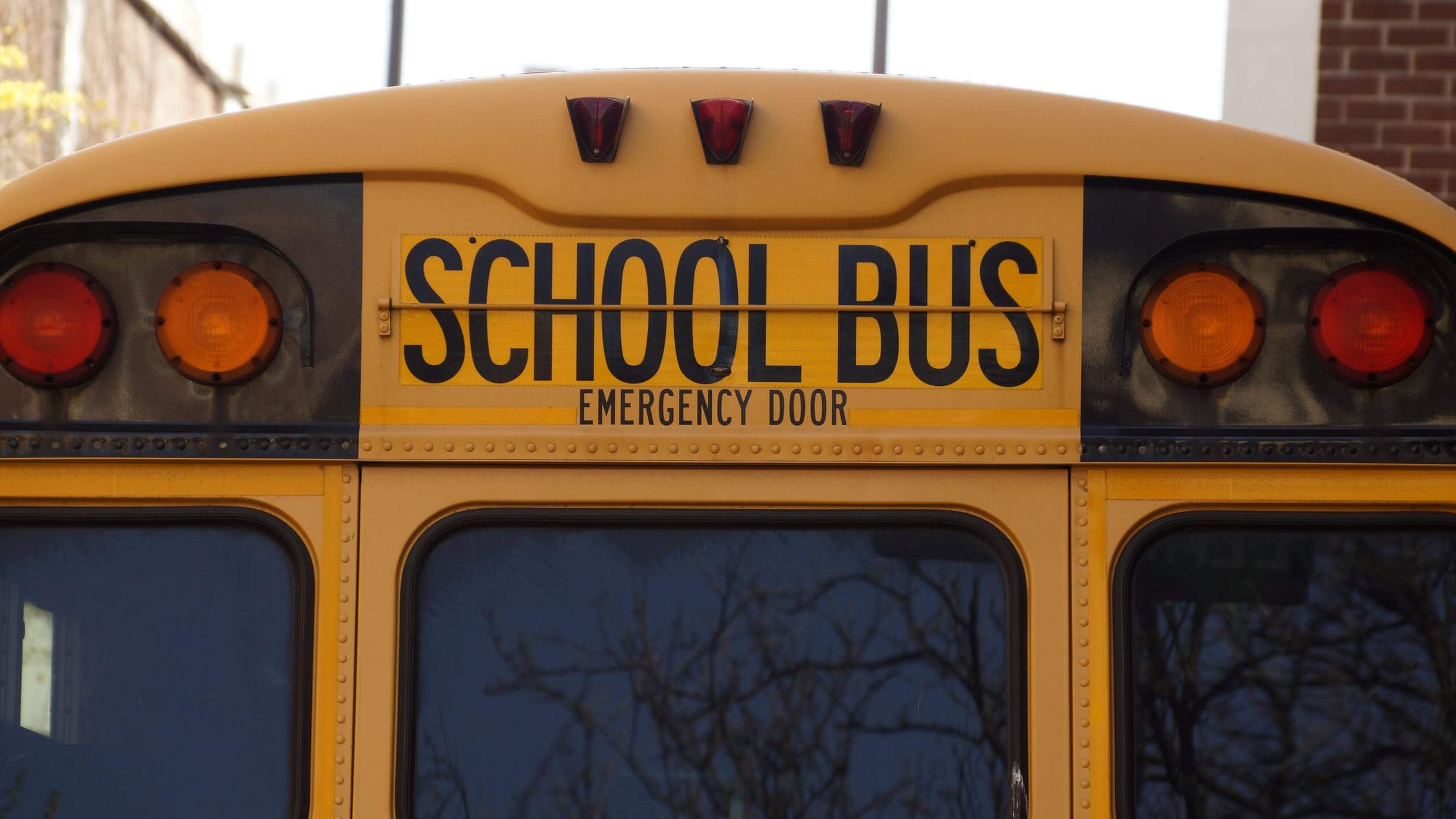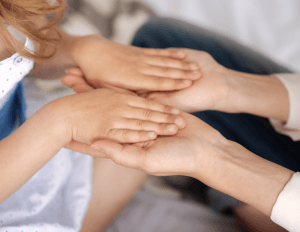To a child, making the jump from kindergarten to elementary school can feel like a giant leap into the abyss. The transition to a new grade, and possibly a new school, is an exciting (yet scary) time for kids. Without knowing what to expect, they’re unsure about what the next 10 months of their lives will look or feel like. It’s no wonder they get nervous!
When children are about to make this leap they often wonder…
“What if my friends aren’t in my class?”
“Will my teacher be nice?”
“What if I get lost on my way to the bathroom?”
Try as you might to calm their worries, going to a new school or a new grade comes with first day of school anxiety. As a parent, you also experience mixed feelings about your child’s transition in elementary school. You’re excited for, and proud of, your child who is embarking on this new adventure. You may be in disbelief that the child who was once your little toddler is growing up so fast! You may also have your own anxieties about how they will adjust to this transition.
PREPARING FOR BACK TO SCHOOL ANXIETY
The hectic and busy summer is coming to a close, and you’re talking to your child about the new school year. As you shop for pencils, notebooks, binders, and a new backpack, discussions about the upcoming school year get their gears turning. Your child may be over-the-moon excited about their new lunchbox, wondering what recess is going to be like, but also apprehensive about preparing for this great unknown. Back-to-school worries come at different times for kids. For some kids, thoughts about the new school year begin during your preparations. For other kids, worries pile on the night before, or even the morning of, the first day of school. This can result in some last-minute panic. As you desperately try to get the perfect ‘First Day of School’ picture, you wonder what you can do to absorb your child’s worries. You may say things like…
“You have nothing to worry about! You’re going to do great!”
“Of course your teacher is going to be nice!”
“Don’t even worry about that, you’re just being silly.”
The truth is that calming first day of school anxiety starts long before September. While you can’t completely shield your child from these anxieties, it is possible to ease their worries so that you both feel prepared for that big first day.
The keys to a smoother transition in elementary school are knowing what the common concerns are and how to address them. As you continue reading, you’ll learn about common worries your child may have and effective strategies to start using today. As your child prepares for school, start thinking about the following:
Socialization: Does my child know anyone else in this class? How can I help my child make friends? Can my child introduce themselves without my help? If my child wants to play with a classmate, do they know how to approach them?
Extracurricular and play activities: Does my child feel comfortable playing with other children? Is my child engaged in an extracurricular activity, so that they can meet other kids throughout the school year? Do I know other parents whose children are engaged in activities?
Your role in anxiety management: Have I talked openly with my child about their worries? Do I know how to effectively calm their worries? Can my child sense that I’m worried for them?
LEARNING AND REINFORCING SOCIAL SKILLS

-
-
- If possible, find out who else will be in your child’s class. If you know some of the children (or the parents of some children), or even the teacher, let your child know.
- “Oh look! Michael S. is in your class next year. Do you remember when you played with him at the park?”
- “Guess what? I found out Ava P. is in your class. Ava’s mother is Mrs. P, do you remember her? Her and I grew up together! So you already know a little bit about their family! Isn’t that cool?”
- “I see that Mrs. Thompson is your teacher. I know William had her as a teacher, and he said she is so much fun!”
- Use role playing at home to get your child used to introducing themselves. You can set up stuffed animals or toys to act as classmates. Show your child how you would introduce yourself. Help your child memorize some prompts such as:
- “Hi, my name is Luke. What’s your name?”
- “Hi, I’m Luke. Can I play on the slide with you?”
- “Hi. What’s your name? I’m Luke. Do you want to play on the swings with me?”
- If possible, find out who else will be in your child’s class. If you know some of the children (or the parents of some children), or even the teacher, let your child know.
-
Don’t forget to role play a situation in which another child chooses to not play with yours. Knowing that this experience is normal (and happens to adults too!) can help your child cope with this type of situation.
AFTER SCHOOL ACTIVITIES

If your child is not already involved in a sport or hobby outside of school, talk to your child about their interests. Children with an extra large reservoir of energy tend to do well in sports. Kids who are easing into socialization may do better in smaller groups or non-sport clubs. Teachers and other parents are excellent resources for finding out what’s out there. Don’t be afraid to ask for suggestions!
HELPING YOUR CHILD OVERCOME ANXIETY
Lastly we come to your role as the parent in anxiety management. You might be wondering if talking about school anxiety will only make things worse. This is a myth! If your child expresses back to school anxiety, speak openly and honestly (in an age-appropriate way) with them. Allow your child to talk about what’s on their mind. Instead of trying to fix the anxiety, normalize their feelings:
“It makes sense that you would feel nervous.”
“It’s okay to be anxious for your first day.”
“I get nervous too sometimes. Even good changes can be a little scary.”
After you have taken the time to hear their worries, teach them calming techniques to use when they feel anxious. One of my favorite videos from Sesame Street is “Belly Breathe”. Belly breathing can be used with kids who have trouble managing their anger and anxiety. With a fun tune and Elmo to help guide them, playing this video in the weeks leading up to school will help your child learn how to manage those scary feelings.
Using visualization and positive thinking are other ways you can decrease your child’s anxiety about the school year. Ask your child what they imagine their first day will be like. Discuss openly what the structure of their day will be like: wake-up time, breakfast, getting to school, meeting the teacher, interacting with classmates, lunch/recess, and after-school scheduling. By knowing what to expect, the day becomes less mysterious for them. Also talk about past experiences they’ve had where the environment was new and the outcome was positive.
As with most parenting techniques, it all comes down to you. If you find yourself struggling with difficult emotions related to this life change, seek support from loved ones. As we know, children can sense your emotions and feed off of them. The calmer you are, the calmer your child will be.
If you’re struggling to cope with back to school anxiety, learn more about our services for parents.




